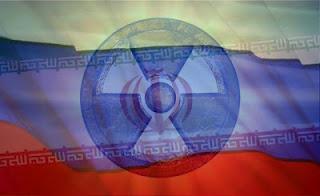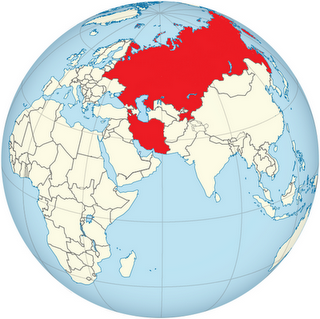 When Peter the Great started the Azov Campaigns against the Tartars, in 1695, his aim was to give Russia access to the Black Sea. From that moment, the need of providing the country with an outlet to the warm seas became one of the geopolitical imperatives of the Russian Empire and then the Soviet Union. The end of Moscow’s rule over Eastern Europe, the Caucasus and Central Asia marked asetback to Russian naval ambitions, leaving Russia struggling for regaining lost ground on the continent.
When Peter the Great started the Azov Campaigns against the Tartars, in 1695, his aim was to give Russia access to the Black Sea. From that moment, the need of providing the country with an outlet to the warm seas became one of the geopolitical imperatives of the Russian Empire and then the Soviet Union. The end of Moscow’s rule over Eastern Europe, the Caucasus and Central Asia marked asetback to Russian naval ambitions, leaving Russia struggling for regaining lost ground on the continent.
One of the means for the restoration of Russia’s role in Eurasia, facing both NATO’s Eastward expansion and China’s economic rise, could be the creation of a Russian-led Eurasian Union along the lines of the European Union, as proposed by Russian Prime Minister Vladimir Putin. The Customs Union of Belarus, Kazakhstan and Russia is seen as the base upon which to push for further integration among post-Soviet economies. Kyrgyzstan and Tajikistan have already expressed interest in the project, while Moldova, Ukraine, Armenia, Turkmenistan and Uzbekistan seem to be less interested in joining the proposed union.
Despite its economic nature, the geopolitical potentialities of the Eurasian Union may even overcome economic benefits for its members, especially if Western pressures should bring into it one of the most geostrategically important countries in Eurasia: Iran. The Islamic Republic is currently facing international isolation due to its nuclear program, suspectedof havingmilitary purposes. As confrontation between the United States and Iran escalates, Tehran is finding itself further pushed into an alliance with Russia, with whom the Ayatollahs share a common interest in limiting the political influence of the United States in the post-Soviet space, and concern regarding the possible spread of some form of pan-Turkic ideology in the region.
Tehran’s membership in the Eurasian Union envisaged by Putin would change the geopolitics of Eurasia, fueling Russia’s ambitions on a global scale. Firstly, Iran would expand the geographical scope of the union, bringing its south-western borders to the Persian Gulf. Iranian presence would also strengthen the will of Persian-speaking Tajikistan to join the block, convincing Armenia to do the same. The lack of common borders with any of the countries participating to the Customs Union is actually the reason why Yerevan has rejected any plan to join the Eurasian Union proposed by Putin, despite its strong economic, political and military ties with Moscow. As the largest Shia country in the world, Iran might also allow Russia to increase its presence in other mostly Shia countries such as Iraq, Azerbaijan and Bahrain, or countries with powerful Shia or pro-Shia forces such as Lebanon and Syria.
Secondly, Iran’s presence would strengthen Russia’s position in the world hydrocarbons market. With Iranian fields, the Eurasian Union would hold roughly one fifth of the world’s total oil reserves and almost half of the world’s gas reserves. Furthermore, the geopolitical control of the Strait of Hormuz, through which 40 percent of the world’s oil transits, would extend Russia’s energy blackmail to Europe on a global scale. It goes without saying that Bandar-Abbas, headquarters of the Iranian Navy, would then become one of the most important bases of the Russian Navy and perhaps the headquarters of a reconstituted Russian Indian Ocean fleet.
The Eurasian Union is undoubtedly the most ambitious project envisaged by the Russian leadership to regain control of the former Soviet space since the Russian Federation exists. Nevertheless, only Iran’s membership may turn this proposed economic block into a truly new geopolitical subject able to successfully confront both the US and China. By bringing an access to the Indian Ocean, Iran would allow Russia for the first time in its history to secure the southern perimeter of Eurasia, and project its geopolitical power over the warms seas. The samewar inAfghanistanwould have had adifferent outcome had the Soviet controlled Iran.
THE GREATER RUSSIA OF THE MOSCOW-TEHRAN AXIS
 However, Iran’s possible adhesion to the Eurasian Union would largely depend on the role played by Tehran within it. Historically rivals, Iran and Russia would hardly participate to any kind of economic, political or military block clearly led by either Moscow or Tehran, being both nations characterized by strong patriotic feelings. For this reason, the realization of Moscow’s ambitious designs should be first preceded by the achievement of an equal partnership between the Russian Federation and the Islamic Republic of Iran, two countries that seems always more destined by geopolitics to face alongside the great challenges of the XXI century.
However, Iran’s possible adhesion to the Eurasian Union would largely depend on the role played by Tehran within it. Historically rivals, Iran and Russia would hardly participate to any kind of economic, political or military block clearly led by either Moscow or Tehran, being both nations characterized by strong patriotic feelings. For this reason, the realization of Moscow’s ambitious designs should be first preceded by the achievement of an equal partnership between the Russian Federation and the Islamic Republic of Iran, two countries that seems always more destined by geopolitics to face alongside the great challenges of the XXI century.

